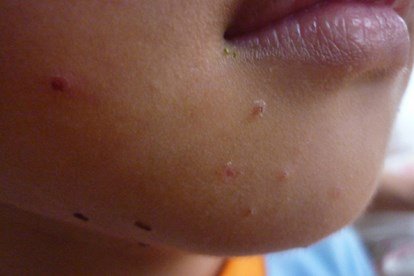Molluscum contagiosum is a common skin infection caused by a virus. If left untreated, it can last for months or even years. Fortunately, there are several treatment options available to help reduce the appearance of molluscum contagiosum and prevent it from spreading. The most common treatment option is cryotherapy, which involves freezing the affected area with liquid nitrogen. This method kills the virus and causes the affected tissue to scab over and eventually fall off.
It can be painful and may cause scarring, so it’s important to discuss this option with your doctor before proceeding. Another option is to use topical medications such as imiquimod or podophyllin resin. Imiquimod works by stimulating your body’s immune system to fight off the virus, while podophyllin works by destroying the virus directly. Both of these medications have side effects such as skin irritation and burning sensations, so make sure you talk to your doctor about any potential risks before starting treatment. Finally, some people opt for laser therapy to treat molluscum contagiosum.
Laser therapy uses intense beams of light to destroy the infected cells and reduce the appearance of molluscum contagiosum lesions. It’s generally more expensive than other treatments and may require multiple sessions for best results, so talk to your doctor about whether this is an appropriate option for you.
No matter which treatment option you choose, it’s important to keep in mind that molluscum contagiosum can return even after successful treatment. To reduce your risk of re-infection, practice good hygiene habits such as washing your hands regularly and avoiding close contact with anyone who has an active infection.
Prevention of Molluscum Contagiosum
Molluscum contagiosum is a viral infection that can be spread easily from person to person. It is important to take preventive measures to reduce the risk of contracting or spreading the virus. To protect yourself from molluscum contagiosum, you should:
- Avoid skin-to-skin contact with someone who has an active infection.
- Wash your hands often with soap and water.
- Avoid sharing personal items such as towels, clothing, and bedding mlb66 ir
- Avoid touching or scratching the affected area.
- Wear loose-fitting clothing that covers the area of skin affected by molluscum contagiosum.
- Keep your skin clean and dry.
If you have molluscum contagiosum, it’s important to take steps to prevent spreading it to other people or other parts of your body. You should:
- Cover any lesions with a bandage or clothing when in contact with others.
- Clean and cover any objects or surfaces that may have been exposed to the virus.
- Avoid sexual contact until lesions have cleared up completely.
It’s also important for children with molluscum contagiosum to practice good hygiene. Parents should remind their children not to scratch, pick, or touch any bumps on their skin. Encourage them to wash their hands often, especially after playing outside.
Diagnosing Molluscum Contagiosum
Molluscum contagiosum is usually easy to diagnose, as the lesions it causes are distinct. A doctor will be able to identify them by sight alone. If the diagnosis is not clear, a doctor may take a sample of the fluid from inside a lesion for laboratory testing.
This will confirm whether or not the virus is present. In some cases, a doctor may use a dermoscope to examine the lesions more closely. This is an instrument with a magnifying lens and bright light that allows doctors to get a closer look at the skin. If you suspect you have molluscum contagiosum, it’s best to see your doctor for an accurate diagnosis and treatment plan.
Conclusion
Molluscum contagiosum is a common skin condition that can affect people of all ages. It is caused by a virus, and while it is not dangerous, it can be annoying and uncomfortable. The best way to prevent molluscum contagiosum is to practice good hygiene, avoid sharing items with others, and cover any open lesions on the skin. Treatment options vary depending on the severity of the case, but may include topical creams or freezing the lesions. While molluscum contagiosum can be contagious, it is not a serious condition and usually resolves without any medical intervention.

